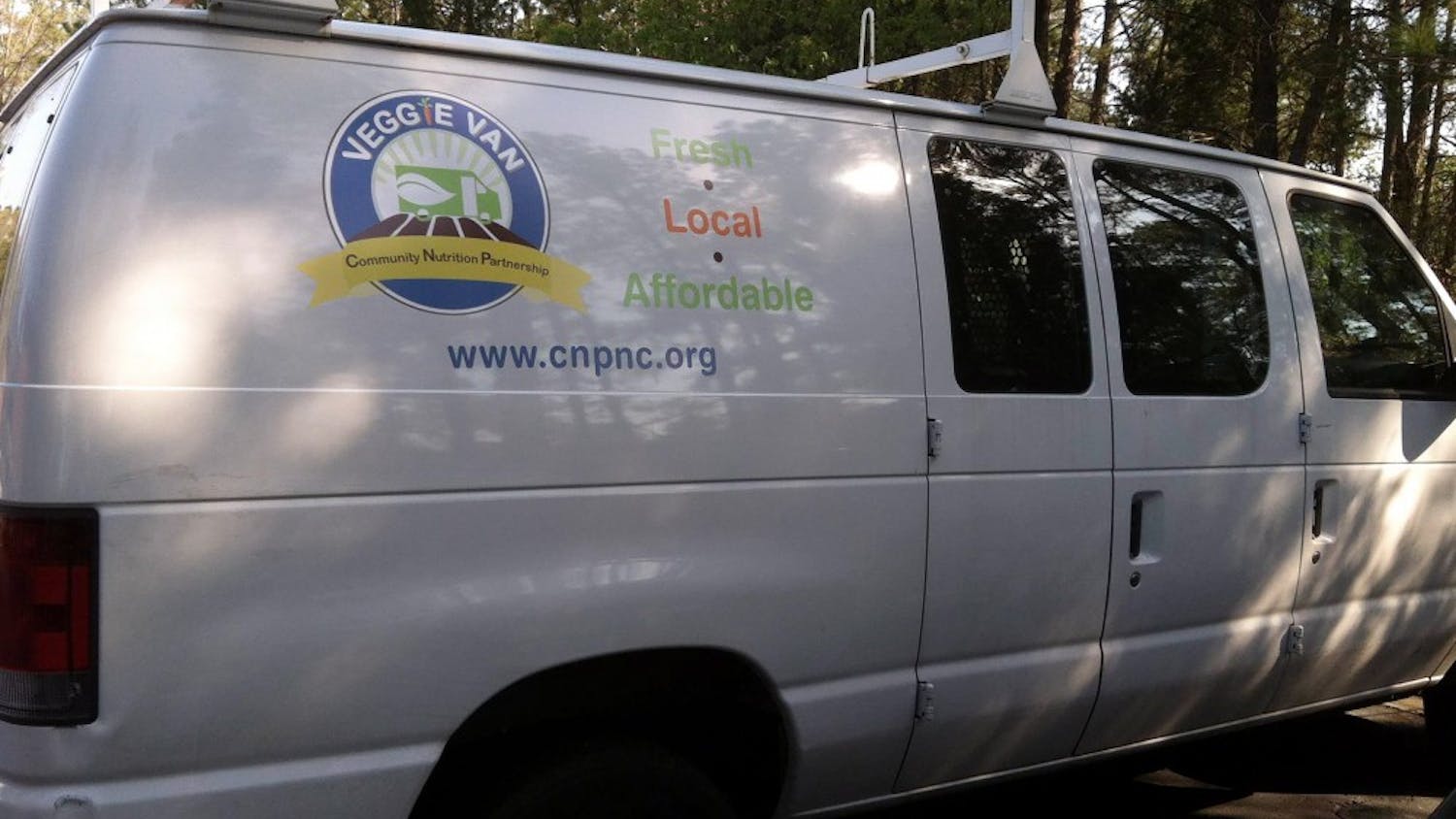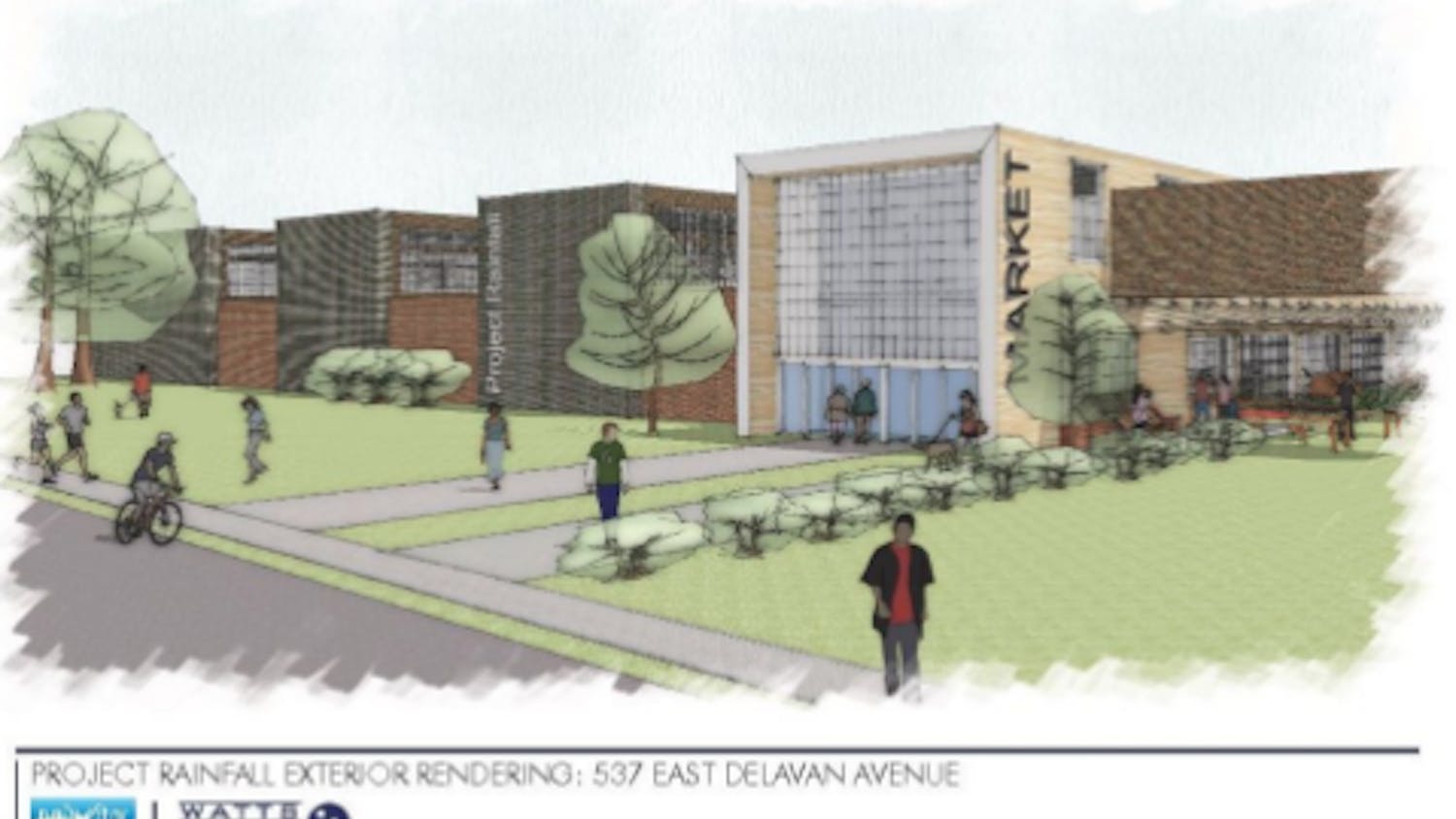In the wake of UB's contested shale institute, the Faculty Senate has created a committee to review polices and assess how the university should handle conflicts of interest and the formation of institutes.
The Joint Committee on Research and Scholarship had its first meeting last week. The committee also met with Cary Nelson, a former president of the American Association of University Professors (AAUP) and current professor from the University of Illinois at Urbana-Champaign. Nelson gave a lecture on Monday entitled"What to Do When the Devil Offers You a Deal" and also met with multiple faculty members in his two days on campus.
The research committee and the UB Coalition for Leading Ethically in Academic Research (UBCLEAR) were two of four sponsors of Nelson's lecture.
It's the Shale Research and Society Institute's (SRSI) first report - with its national attention and "fundamental flaws" - that Nelson said brought him to UB.
Nelson co-authored a draft report with AAUP that illustrates 56 policies about how universities should handle academic-industry relationships.
"The AAUP does not reject industry funding in the least - we think it's inevitable, we think it can produce lots of important results," Nelson explained. "It just needs to be done in an ethical manner that protects the fundamental purposes of the university. So [AAUP is] trying to lay out in detail what those ethics should be."
He said SRSI's report, along with two others issued by other universities around the same time, didn't properly acknowledge the financial conflicts and conflicts of interest the authors had.
Within AAUP's 56 policies, published reports must acknowledge a five-year history of funding - which SRSI did not disclose on the front of its report. Nelson feels this type of transparency is vital in a public university that receives public funds because it identifies faculties' financial conflicts of interest.
Alexander Cartwright, vice president for research and co-chair for the Joint Committee on Research and Scholarship, said the 56 principals - including how to handle conflicts of interest - are a "good starting point" for the committee.
"I'm trying to avoid saying [the committee is] about SRSI because it's not," Cartwright said. "It's actually about how we conduct our research and how do we have the clearest research possible."
Nelson's lecture was the first of a series about public-private partnerships, according to the committee's other co-chair, Faculty Senate Chair Ezra Zubrow. He hopes these lectures will allow for public discussion.
Nelson first contacted James Holston, UBCLEAR chair and English professor, about coming to campus after seeing some of the organization's activities against SRSI.
Proper disclosure of financial conflicts of interest helps everyone because it shows faculty has nothing to hide, according to Nelson. Financial conflict of interest is fact and not hypothesis, he said.
"It doesn't prove the fact you were influenced by it," Nelson said. "But it raises the possibility that you were, and it can be unconscious, which is important. People are not perfect."
Nelson said shared governance at UB is broken. He said the events around SRSI have "brought this to light."
Shared governance between faculty and administration should have allowed Faculty Senate oversight in the creation of the institute and the appointment of its co-directors, John Martin and Robert Jacobi, Nelson said.
Zubrow, however, thinks the Faculty Senate and the university administration have recognized the increase of the important role of joint governance over the last year.
Nelson stressed how vital faculty senates should be within universities."There's a lesson to learn from this and I'm interested in watching this institution learn the lesson," Nelson said.
Cartwright thinks it's important to review polices periodically, "independent of any particular institute and anything that's going on."
Nelson stressed the importance of academic freedom, which means faculty members can say and publish whatever they want - something Cartwright agrees with. He thinks it's important to protect faculty and their research, and the committee will discuss how to use policies to protect faculty.
Members of UBCLEAR recently wrote a report to send to the SUNY Board of Trustees regarding the shale institute, which the trustees are currently investigating. UBCLEAR wants SRSI to be shut down, but Nelson disagrees.
"Personally I would like to reconstitute the institute or I would want to identify it as a unit to promote economic relations," Nelson said. He doesn't think SRSI has lived up to its mission.
The committee has no set timeline, but Cartwright said it is a permanent committee and it will make recommendations to construct policies around built consensus.
Recommendations from AAUP are only a part of what the committee will examine, Cartwright said.
The committee is made up of: Edward Steinfeld, architecture and planning; Timothy Dean, the College of Arts and Sciences; Chunhao Li, School of Dental Medicine; David Burganowski, Graduate School of Education; Joseph Mollendorf, engineering; Susan Mangold, law; Arun Jain, management; Mary Ann Meeker, nursing; William Jusko, pharmacy, Cather Dulmus, social work; and Edward Herman, University Libraries.
Nelson felt his talks with administration and the committee were well received. "I think some administrators are sympathetic toward incorporating some of the AAUP's principles in the faculty handbook," Nelson said. "That would go a long way in making sure that the mess over the shale institute wouldn't have happened and wouldn't happen again."
Email: news@ubspectrum.com





